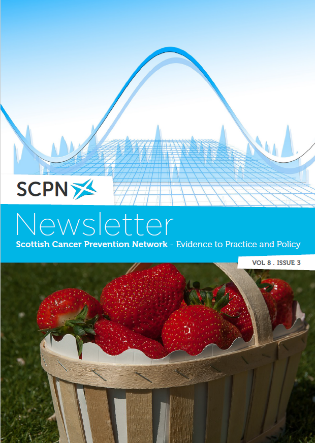
Cancer and lifestyle – research round up

19 Aug 17 |
Mediterranean diet adherence and risk of postmenopausal breast cancer: results of a cohort study and meta-analysis
van den Brandt PA, Schulpen M (2017)
Cancer Epidemiology Vol 140, Issue 10, pages 2220 – 2231.
http://onlinelibrary.wiley.com/doi/10.1002/ijc.30654/abstract
The Mediterranean Diet (MD), high in plant proteins, whole grains, fish and monounsaturated fat; moderate alcohol intake; and low in refined grains, red meat and sweets is known to protect against cardiovascular disease. This study looked at the relationship between eating a MD and postmenopausal breast cancer risk. The Netherlands Cohort Study (n=62,573 women aged 55–69 years) provided information on dietary and lifestyle habits in 1986. A MD score measured adherence to the MD diet.
Twenty years later, through record linkage, 2,321 participants with complete data on diet and potential confounders who had a breast cancer diagnosed were compared to 1,665 participants without breast cancer. MD adherence showed a nonsignificant weak protection against ER positive (ER+) or total breast cancer risk but a statistically significant protective association for ER negative (ER−) breast cancer (HR 0.60, 95% Confidence Interval, 0.39–0.93) for high versus low MD adherence (ptrend=0.032).
This important finding suggests that 32.4% of ER− breast cancer, and 2.3% of total and ER+ breast cancer could be avoided if the population strongly adhered to a Mediterranean Diet.
How to Manage the Obese Patient With Cancer
Renehan AG et al. (2016)
J Clin Oncol Dec 10;34(35):4284-4294.
https://www.ncbi.nlm.nih.gov/pubmed/27903151
Obesity is common in cancer patients and associated with 13 cancer types. Obesity is also socially patterned and more common in women from disadvantaged areas. This study involved observational data and secondary analyses of trial data on how obesity affects the treatment offered to patients and levels of treatment-related toxicity.
There is a commonly held opinion that obesity is associated with greater toxicity from cytotoxic chemotherapy and according dosages are often reduced. This review found no evidence of greater toxicity and so recommends that dosages are calculated as per the general population. For those requiring surgery for malignancy, there is evidence that a raised BMI is associated with increased perioperative mortality and increased rates of infection after surgery.
This finding however does not persist for those undergoing surgery for benign indications. The review concludes that current evidence is inconsistent and that more research is required before application to guideline formation.
The association of dietary quality with colorectal cancer among normal weight, overweight and obese men and women: a prospective longitudinal study in the USA
Torres Stone RA et al. (2017)
BMJ Open Volume 7, Issue 6.
http://bmjopen.bmj.com/content/7/6/e015619
This is the first study to examine the potential benefits of a healthy diet in reducing colorectal cancer risk among men and women who are normal weight, overweight and obese. Data were obtained on 398,458 participants who were 50–71 years old in 1995–1996 and were followed up until 2006. Dietary quality was assessed according to adherence to a Mediterranean Diet, the Healthy Eating Index-2010 and the Dietary Approaches to Stop Hypertension score, and was stratified by BMI category.
Over this period there were 6515 new diagnoses of CRC (1953 among the normal weight, 2924 among the overweight and 1638 among the obese; 4483 among men and 2032 among women). A strong dose–response pattern was found for normal weight and overweight men. An increasing dietary quality was associated with decreasing risk of CRC. This pattern was also observed for obese men but less consistently across the three measures of dietary quality. The findings were of smaller magnitude and less consistent for women but still suggesting associations of similar direction.
This paper concluded that a better diet was associated with a reduced risk of incident CRC up to 10 years later for men regardless of baseline weight category.

The SCPN Newsletter: Volume 8, Issue 3
In this issue: Achieving a tobacco-free generation by 2034 and improving the reach of Scotland’s cancer screening programmes are among the topics covered in Volume 8, Issue 3. In the science section we have the CUP report on Diet, Nutrition, Physical Activity and Breast Cancer from World Cancer Research Fund, cancer incidence in Scotland and the latest cancer and lifestyle research roundup. We also have a recipe for watermelon and tomato breakfast salad to break things up!